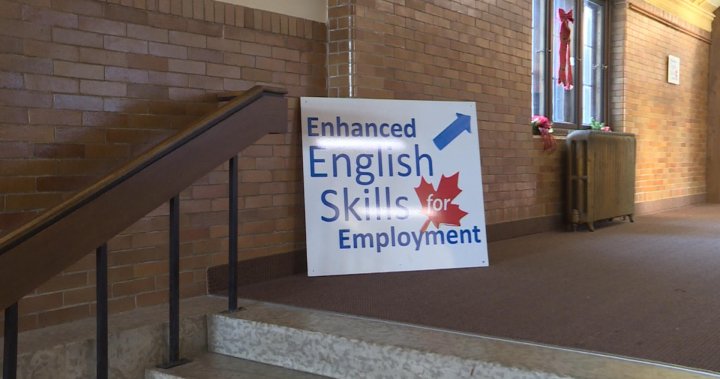A specialized English language program in Winnipeg, known as the Enhanced English Language Skills for Employment, is set to close in four months due to a loss of federal funding, which poses a significant setback for both the institution and its current cohort of students. Operating out of the Canadian Mennonite University for the past four years, the program targets new Canadians aiming to improve their English proficiency to secure well-paying jobs in their respective fields. The program’s executive director, Louise Giesbrecht, emphasized the tailored approach of the curriculum, which focuses on the unique needs of each student by developing their reading, writing, and speaking skills based on their individual goals and desired employment paths. Such personalized instruction is crucial for students who face differing levels of English comprehension.
The impending closure of the program has left the 140 students enrolled in the current class devastated. Many of these students, who come from diverse backgrounds, rely on this program to enhance their job prospects in Canada. Giesbrecht noted that there is an acute need for language programs, particularly for newcomers with low or no English proficiency, who often find themselves unable to secure even entry-level positions. She highlighted the challenges faced by the most vulnerable populations, stating that some of these individuals may require two to three years of intensive English training to reach a functional level where they can participate in the workforce appropriately.
The significance of the program is further illustrated through the experiences of students like Oleksandra Borys, a journalist who fled the war in Ukraine. Having completed the language program earlier this year, Borys spoke about the transformative nature of the intensive learning environment that helped her address particular difficulties, such as understanding fluent English and differentiating various accents. Her personal progression, particularly after taking a listening skills course, underscores the tangible improvements that the program provides to its participants, highlighting the essential role such specialized language training plays for newcomers adapting to life in Canada.
While the federal government has not publicly commented on the funding cut, the situation has drawn attention from other levels of government. A spokesperson for the Manitoba government acknowledged the loss of funding and pledged to advocate for more substantial financial support from the federal government for settlement services. This advocacy effort is critical as these services play a vital role in integrating newcomers into Canadian society, allowing them to contribute economically and socially.
The decision to cut funding for programs like the Enhanced English Language Skills for Employment raises concerns about the future of language education for newcomers, as well as its broader implications for economic integration and workforce participation. The closure of such programs may lead to a gap in support for individuals who need language skills to navigate the job market effectively. Without adequate funding for these essential services, many newcomers may struggle to develop the necessary skills to thrive in a competitive employment landscape, potentially setting them on paths of prolonged economic disadvantage.
In conclusion, the impending closure of this vital language program highlights the critical need for sustained and reliable funding for settlement services that foster the successful integration of newcomers into Canadian society. As the Manitoba government works to advocate for support from the federal level, the experiences of students like Borys serve as a reminder of the importance of language education in helping individuals build their futures and contribute to their communities. The loss of such programs not only affects the immediate participants but also has lasting ramifications for the workforce and society at large, underscoring the necessity for continued investment in language and settlement services for newcomers in Canada.










